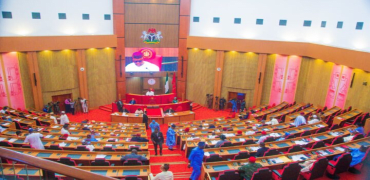Nigeria's Energy Crisis: The Silent Killer Of Industrial Growth, MAN Warns
Nigeria’s Energy Crisis: The Silent Killer of Industrial Growth, MAN Warns
By Achimi Muktar
Nigeria’s industrial sector is grappling with an invisible but crippling force—an energy crisis that threatens to stifle growth, deter investments, and hinder job creation. The Manufacturers Association of Nigeria (MAN) has raised the alarm, warning that the nation’s epileptic energy sector is a major roadblock to industrial advancement.
At a media briefing in Lagos, Francis Meshioye, the President of MAN, outlined the dire state of Nigeria’s energy infrastructure, highlighting persistent issues like unreliable power supply, inadequate energy infrastructure, and soaring electricity tariffs. These, he said, are severely impacting the manufacturing sector, making it increasingly difficult for industries to compete, grow, and thrive in the global market.
“Energy security is a fundamental challenge that continues to undermine the productivity of our industries,” Meshioye said. “Inadequate and unreliable energy supply is preventing our industries from reaching their full potential. It’s also a barrier to attracting much-needed investments and creating sustainable jobs for Nigerians.”
To address these critical issues, MAN has organized the Manufacturers’ Energy Security Summit, which will take place in Lagos from November 19 to 21, 2024. With the theme “Energy Adequacy for Industrial Growth,” the summit aims to bring together industry experts, policymakers, and stakeholders to craft actionable solutions and share best practices.
The summit, Meshioye explained, is a pivotal platform for discussing how to ensure a stable and affordable energy supply, which is essential not just for operational success but for Nigeria’s economic growth at large.
“We all recognize the crucial role energy plays in driving industrial growth and economic development,” Meshioye continued. “For industries to thrive, they need an adequate and reliable energy supply. Without it, sustainable growth becomes nearly impossible.”
Meshioye’s comments underline a stark reality: without tackling the energy crisis head-on, Nigeria’s industrial sector will continue to fall behind, unable to compete globally or unlock its true potential. The country’s energy woes, which include constant power outages, erratic supply, and exorbitant tariffs, are acting as a weight on the country’s industrial ambitions.
With the summit just around the corner, the pressure is mounting on both the government and the private sector to find effective, long-term solutions to Nigeria’s energy woes. The stakes could not be higher—addressing energy security is crucial not just for industrial growth but for the broader goal of economic prosperity.





















